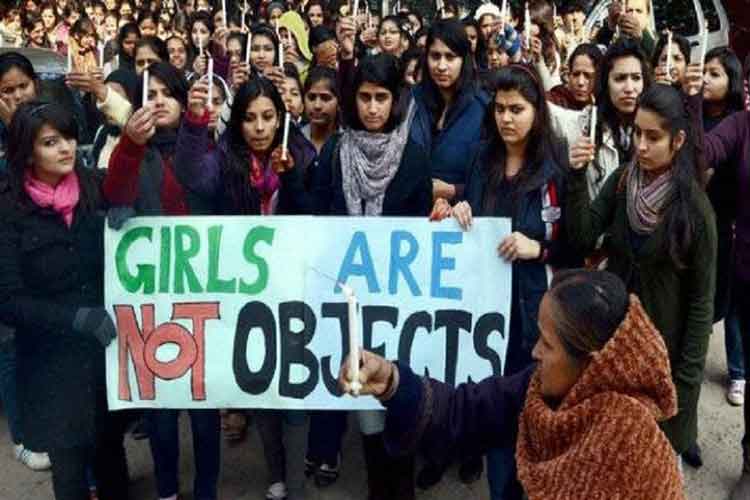Table of Contents
Women Rights: 11 Rights Of Women That We All Should Know About
Women have got 11 different rights in Indian law. Important among these are the right to protection against sexual harassment in the office, the right to lodge zero FIR in case of any incident and the right to get equal salary etc. Let us know about it in detail.
The Government of India has given many rights to women. Be it gender equality or equal participation of men in employment, right to live with dignity and decency or protection from harassment in office, there are many such rights related to women which are discussed in detail. I must know. We will get information about 11 rights given to women on the basis of gender equality in India. Let us know what these rights are.
Women Rights 1: Right to equal remuneration
According to the provisions recorded in the Equal Remuneration Act, when it comes to salary, pay or wages, there cannot be discrimination on the basis of gender. A working woman has the right to be paid at par with a man.
Women Rights 2: Right to dignity and decency
Women have got the right to live with dignity and decency. In any case, if a woman is the accused, any medical examination is being done on her, then this work should be done only in the presence of another woman.
Women Rights 3: Protection from harassment at office or workplace
According to Indian law, if a woman is physically assaulted or sexually harassed in the office or at the workplace, she has the right to file a complaint. Under this law, the woman can give a written complaint to the Internal Complaint Committee (ICC) in the branch office within a period of 3 months.
Women Rights 4: Right against domestic violence
Under Section 498 of the Indian Constitution, a wife, female live-in partner or a woman living in a house has got the right to raise voice against domestic violence. Husbands, male live-in partners or relatives cannot commit verbal, financial, emotional or sexual violence against the women of their family. The accused may be sentenced to non-billable imprisonment for 3 years or may have to pay a fine.

Women Rights 5: Right not to reveal identity
A woman’s right to protect her privacy is enshrined in our law. If a woman has been a victim of sexual harassment, she can record her statement before the District Magistrate alone. A woman can give statement in the presence of a police officer.
Women Rights 6: Right to free legal aid
According to the Legal Services Authorities Act, a rape victim has the right to get free legal advice. Arrangements for a woman are made by the Legal Services Authority.
Women Rights 7: A woman cannot be arrested at night
A female accused cannot be arrested after sunset or before sunrise. The order of First Class Magistrate has been kept in exception. The law also says that if someone is being interrogated in his home, then this should be done in the presence of a female constable or family members.
Women Rights 8: Right to lodge virtual complaint
Any woman can lodge her complaint virtually. In this she can take help of email. If the woman wishes, she can send her complaint through a letter to the police station with the registered postal address. After this, the SHO will send a constable to the woman’s house who will record the statement.
Women Rights 9: Can’t use indecent language
Cannot depict a woman (her appearance or any part of her body) in any manner that is indecent, offensive, or corrupting public morality or ethics. Doing so is a punishable offence.
Women Rights 10: Can’t chase women
Under Section 354D of the Indian Penal Code, legal action will be taken against any person who follows a woman, tries to contact her despite repeated refusal or tries to monitor any electronic communication like internet, email etc. .
Women Rights 11: Right to zero FIR
If a woman has rights, she can lodge an FIR in any police station or from anywhere. For this, it is not necessary that the complaint be filed in the same police station where the incident took place. Zero FIR will later be sent to the police station where the crime took place.
Also Read: Labor Laws You Need to Know | 10 Important Labour Laws in India

Women Laws In 2023: These laws changed for women in India this year, got new rights
This Act amended the Indian Penal Code to consider acid attacks as a gender neutral crime. Now intern, volunteer or trainee women will be protected from sexual harassment at the workplace.
The Government of India has played an important role in recent years in promoting women’s rights and equality. In 2023, the government passed several important laws intended to protect and empower women. Here, you can get information about some important laws recently passed for women in India.
Criminal Law (Amendment) Act, 2023
This Act amended the Indian Penal Code to consider acid attacks as a gender neutral crime. This means that men can now be punished for acid attacks, which were previously punishable only if committed against women. The Act ranges from life imprisonment to death as the maximum punishment for acid attacks.
Sexual Harassment of Women (Prevention, Prohibition and Redressal) Amendment Act, 2023
The Act amends the Sexual Harassment of Women (Prevention, Prohibition and Redressal) Act, 2023 to expand its reach to cover all women, including non-employed women in the workplace. This means that now intern, volunteer or trainee women will be protected from sexual harassment at the workplace.
Maternity Benefit (Amendment) Act, 2023
This Act amends the Maternity Benefit Act, 1961 to increase the period of maternity leave from 12 weeks to 26 weeks for women working in the government and private sector. The Act also provides for crèche facilities for working mothers.
Code of Criminal Procedure (Amendment) Act, 2023
This Act amends The Code of Criminal Procedure, 1973 to make it mandatory for police officers to register a First Information Report (FIR) for a crime reported by a woman, even if she is not able to produce evidence. The Act makes it an offense for police officers to refuse to register an FIR.
Protection of Children from Sexual Offenses (Amendment) Act, 2023
The Act amends the Protection of Children from Sexual Offenses Act, 2012 to criminalize sexual intercourse with a mentally ill or disabled minor. The Act has increased the minimum punishment for child sexual abuse from 10 years to 20 years.
Also Read: Most important Labor Laws in US – Overview of the Major Labour Laws

Women’s Reservation Bill 2023
The Women’s Reservation Bill, 2023 is a constitutional amendment bill that provides 33% reservation for women in the Lok Sabha and state assemblies. This bill is known as the 128th Constitutional Amendment Act, passed by the Parliament in 2023.
According to the bill, 33% seats in the Lok Sabha and state assemblies will be reserved for women. Elections on these reserved seats can be contested only by women candidates.
The purpose of the bill is to increase the participation of women in Parliament and state assemblies. The government believes that women’s reservation will give women more representation in politics and they will be able to play a more effective role in the decision-making process.
Also Watch: Abortion as per Hindu Scriptures | Infanticide as per Hindu Religious Books
Final Comments – Women Rights in India
These are just a few of the many important laws passed in recent years to protect and empower women in India. These laws are the government’s commitment to gender equality and women’s rights.
The impact of these laws still needs to be fully understood, but they have the potential to bring positive change to women’s lives. For example, increasing punishment for acid attacks could help protect women from this type of violence.
The Sexual Harassment (Amendment) Act may provide better protection to women from sexual harassment at the workplace. And the Maternity Benefit (Amendment) Act can give women more equality and protection in the workplace.
If you have any questions related to our story, then please tell us in the comment box given above the article. We will keep trying to provide correct information to you. If you liked the story, don’t forget to share it on your social media handles. Stay connected to www.knowledgeshowledge.com to read more such stories.
